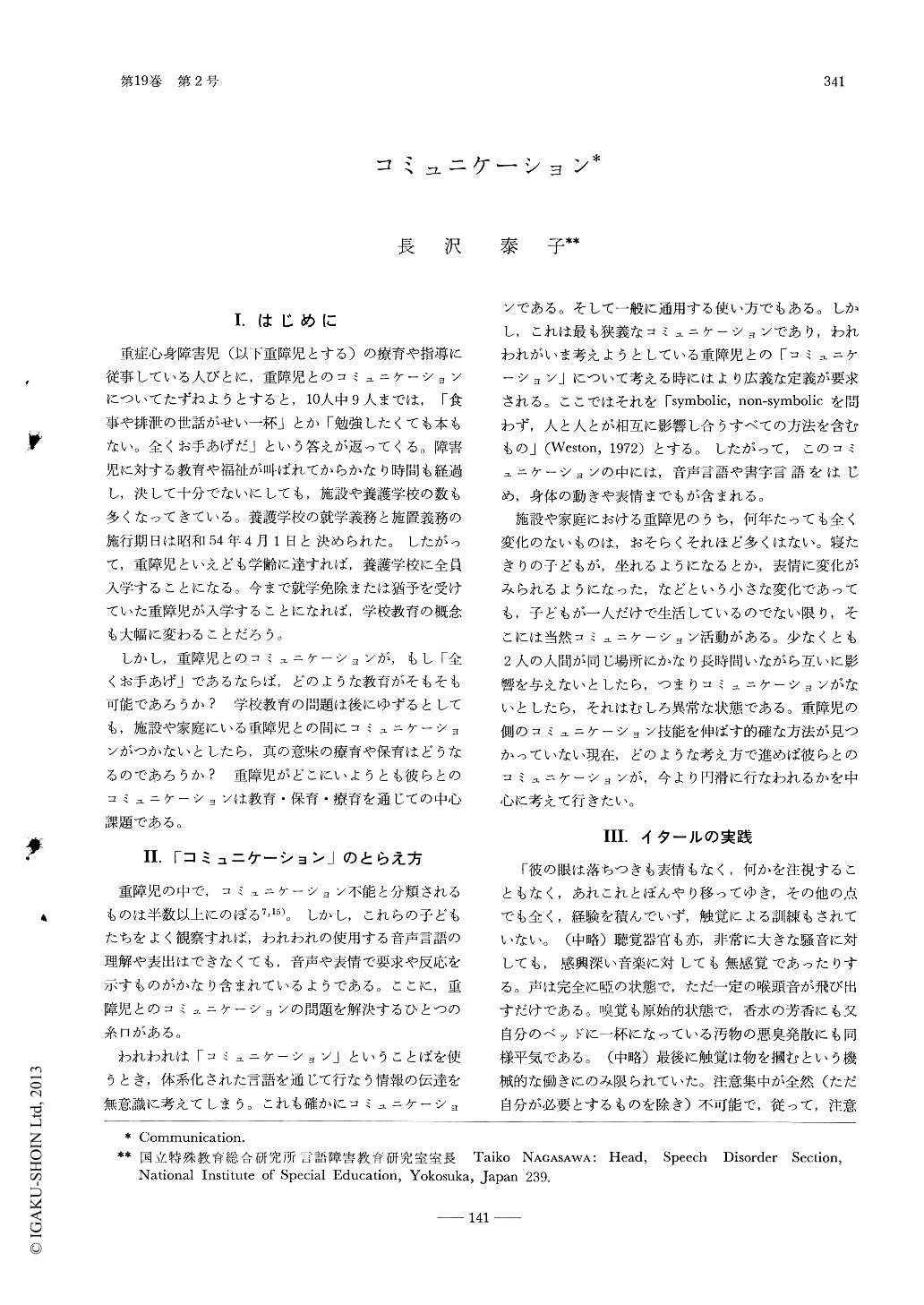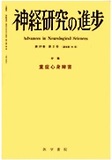Japanese
English
- 有料閲覧
- Abstract 文献概要
- 1ページ目 Look Inside
I.はじめに
重症心身障害児(以下重障児とする)の療育や指導に従事している人びとに,重障児とのコミュニケーションについてたずねようとすると,10人中9人までは,「食事や排泄の世話がせい一杯」とか「勉強したくても本もない。全くお手あげだ」という答えが返ってくる。障害児に対する教育や福祉が叫ぼれてからかなり時間も経過し,決して十分でないにしても,施設や養護学校の数も多くなってきている。養護学校の就学義務と施置義務の施行期日は昭和54年4月1日と決められた。したがって,重障児といえども学齢に達すれば,養護学校に全員入学することになる。今まで就学免除または猶予を受けていた重障児が入学することになれば,学校教育の概念も大幅に変わることだろう。
しかし,重障児とのコミュニケーションが,もし「全くお手あげ」であるならば,どのような教育がそもそも可能であろうか? 学校教育の問題は後にゆずるとしても,施設や家庭にいる重障児との間にコミュニケーションがつかないとしたら,真の意味の療育や保育はどうなるのであろうか? 重障児がどこにいようとも彼らとのコミュニケーションは教育・保育・療育を通じての中心課題である。
There has been a marked increase in the parents' request for education for 'the profoundly handi-capped', that is those who are both mentally and physically handicapped. By the year 1979, all the handicapped children, no matter how pro-foundly handicapped they may be, should be accepted, by law, in the school systems. Most professional personnel including medical doctors, teachers and therapists state that they do not have any means whatsoever to communicate with the profoundly handicapped.

Copyright © 1975, Igaku-Shoin Ltd. All rights reserved.


